
Kanazawa Castle Park: A Timeless Jewel in Kanazawa
Kanazawa Castle Park is a stunning historical site that offers a glimpse into Japan's rich samurai past. Spanning over 17 hectares, the park is a serene oasis in the heart of Kanazawa City, perfect for a leisurely stroll or a deep dive into Japanese history and culture. The park is home to Kanazawa Castle, originally built in 1583, which served as the residence of the Maeda clan, one of the most powerful samurai families in Japan. The castle has been meticulously restored, and its impressive structures, including the Ishikawa Gate and the Sanjikken Longhouse, are a sight to behold. The park itself is a masterpiece of landscape design, featuring beautiful gardens, traditional stone paths, and scenic ponds. In spring, cherry blossoms transform the park into a pink wonderland, while autumn brings a vibrant palette of red and orange foliage. The Gyokusen'inmaru Garden, located within the park, is a must-visit for its tranquil beauty and historical significance. The park also offers panoramic views of the surrounding city and mountains, making it a perfect spot for photography enthusiasts. Kanazawa Castle Park is not just about history and nature; it also hosts various cultural events and festivals throughout the year. From traditional tea ceremonies to seasonal festivals, there's always something happening in this lively neighborhood. The park is easily accessible from Kanazawa Station and is close to other major attractions like Kenrokuen Garden and the 21st Century Museum of Contemporary Art, making it an ideal starting point for exploring the city.
Local tips in Kanazawa Castle Park
- Visit early in the morning or late afternoon to avoid crowds and enjoy the serene atmosphere.
- Spring and autumn are the best times to visit for cherry blossoms and colorful foliage.
- Wear comfortable shoes as the park is large and has many walking paths.
- Check the schedule for cultural events and festivals to enhance your visit experience.
- Combine your visit with nearby attractions like Kenrokuen Garden and the 21st Century Museum of Contemporary Art.
Kanazawa Castle Park: A Timeless Jewel in Kanazawa
Kanazawa Castle Park is a stunning historical site that offers a glimpse into Japan's rich samurai past. Spanning over 17 hectares, the park is a serene oasis in the heart of Kanazawa City, perfect for a leisurely stroll or a deep dive into Japanese history and culture. The park is home to Kanazawa Castle, originally built in 1583, which served as the residence of the Maeda clan, one of the most powerful samurai families in Japan. The castle has been meticulously restored, and its impressive structures, including the Ishikawa Gate and the Sanjikken Longhouse, are a sight to behold. The park itself is a masterpiece of landscape design, featuring beautiful gardens, traditional stone paths, and scenic ponds. In spring, cherry blossoms transform the park into a pink wonderland, while autumn brings a vibrant palette of red and orange foliage. The Gyokusen'inmaru Garden, located within the park, is a must-visit for its tranquil beauty and historical significance. The park also offers panoramic views of the surrounding city and mountains, making it a perfect spot for photography enthusiasts. Kanazawa Castle Park is not just about history and nature; it also hosts various cultural events and festivals throughout the year. From traditional tea ceremonies to seasonal festivals, there's always something happening in this lively neighborhood. The park is easily accessible from Kanazawa Station and is close to other major attractions like Kenrokuen Garden and the 21st Century Museum of Contemporary Art, making it an ideal starting point for exploring the city.
Iconic landmarks you can’t miss
Kenroku-en
Discover the serene beauty of Kenroku-en, one of Japan's top gardens, featuring stunning landscapes and rich cultural heritage in Kanazawa.
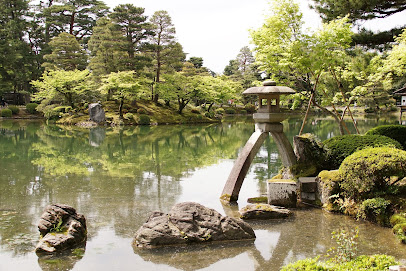
Gyokuseninmaru Park
Explore a meticulously restored Edo-era garden in Kanazawa Castle Park, offering a tranquil escape with scenic views and historical significance.
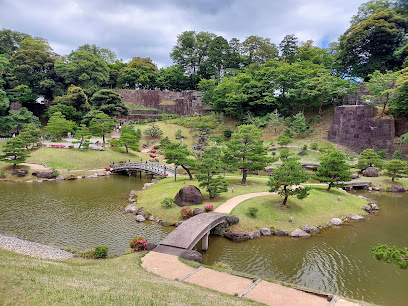
Ishikawa-mon Gate
Explore Ishikawa-mon Gate in Kanazawa, a historical gateway offering a glimpse into Japan's feudal past and architectural heritage.

Kanazawa Castle Ruins
Explore Kanazawa Castle's restored turrets, gates & gardens. Immerse yourself in the history of the Maeda clan & feudal Japan.
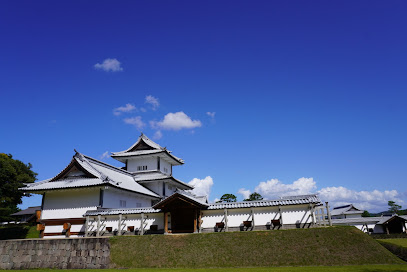
Gojukken Nagaya - Kanazawa castle
Explore Gojukken Nagaya, a historic storehouse in Kanazawa Castle Park, showcasing Edo-period architecture and defensive ingenuity of feudal Japan.
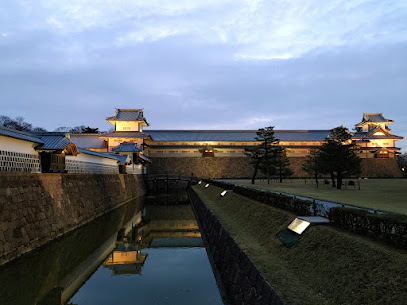
Kenrokuen Garden Katsurazaka Gate
Discover Kenrokuen Garden in Kanazawa: A landscape masterpiece blending history, artistry, and natural beauty in one of Japan's most celebrated gardens.
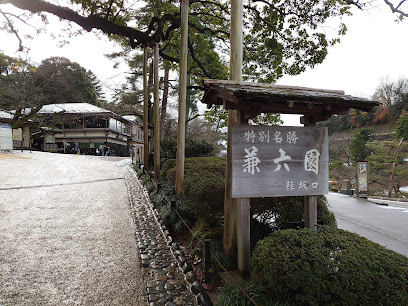
Hishi Yagura
Explore Hishi Yagura, a diamond-shaped turret in Kanazawa Castle Park, showcasing traditional Japanese craftsmanship and defensive architecture.
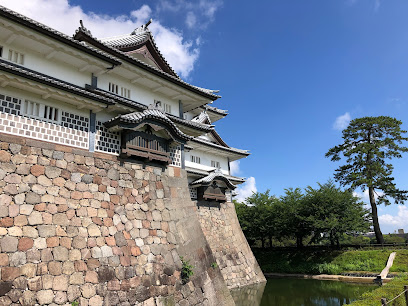
Hommaru-enchi Park
Explore Hommaru-enchi Park in Kanazawa: A historic castle park offering a tranquil escape and a glimpse into Japan's feudal past.
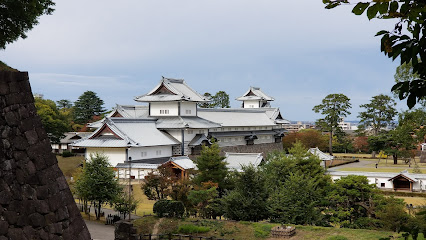
Kanazawa Castle Park Ote-mon Entrance
Enter Kanazawa Castle Park through the Ote-mon and step back in time to explore the legacy of the Maeda clan and Edo-era Japan.
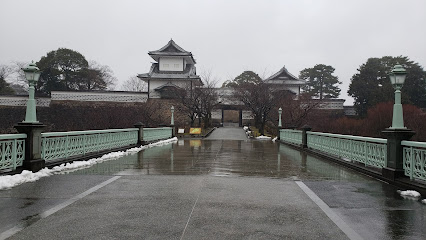
Kanazawa Castle Park
Explore Kanazawa Castle Park: A journey through time in the heart of Kanazawa, where history and natural beauty intertwine.
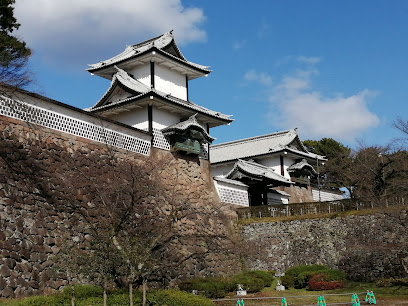
Unmissable attractions to see
Kanazawa Castle Park
Discover the harmonious blend of history and nature at Kanazawa Castle Park, a must-visit destination for tourists in Kanazawa, Japan.
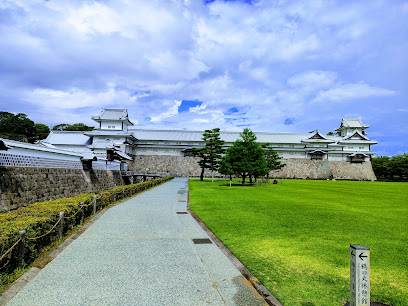
Nagamachi District
Explore Nagamachi District, a historical landmark in Kanazawa that showcases the beauty of Japan's samurai architecture and rich cultural heritage.
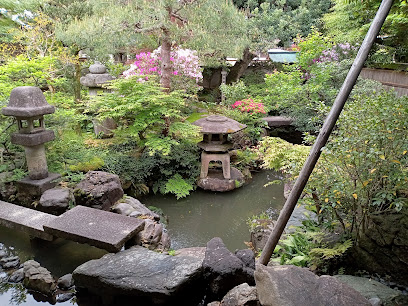
Tsuzumi-mon Gate
Explore the enchanting Tsuzumi-mon Gate, a historic cultural landmark in Kanazawa that embodies the beauty and history of Japan.
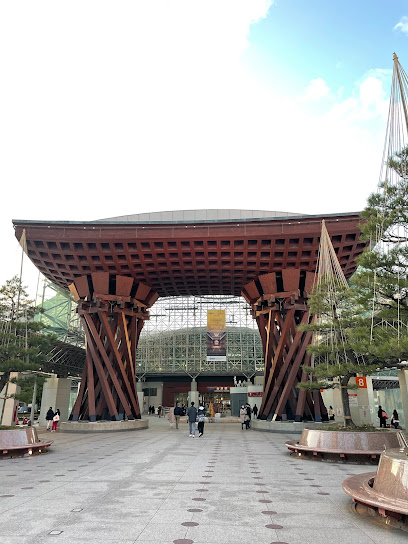
D.T. Suzuki Museum
Explore the D.T. Suzuki Museum, a serene tribute to Zen philosophy and the legacy of Daisetz Teitaro Suzuki in Kanazawa, Japan.
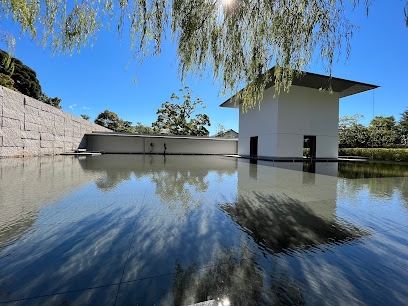
Gyokuseninmaru Park
Discover the serene beauty of Gyokuseninmaru Park, a tranquil garden in Kanazawa Castle Park, showcasing traditional Japanese landscaping and rich cultural heritage.
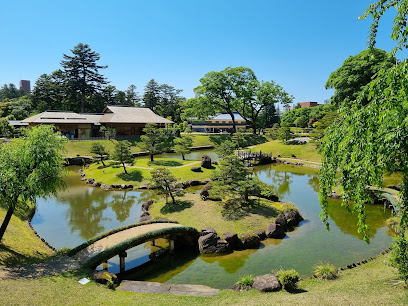
Ishikawa-mon Gate
Experience the grandeur of Ishikawa-mon Gate, a historical landmark that opens a window into the feudal history of Kanazawa, Japan.

The Fourth High School Memorial Park, Ishikawa
Discover the serene beauty and rich heritage of The Fourth High School Memorial Park in Kanazawa, a must-visit destination for nature lovers and history enthusiasts alike.
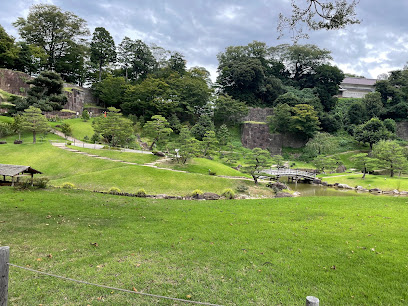
Kanazawa Castle Ruins
Explore the historic Kanazawa Castle Ruins—an architectural gem and a window into Japan's rich feudal past.

Kanazawa Shinise Memorial Hall
Explore the rich heritage of Kanazawa at the Shinise Memorial Hall, showcasing the city's artisan culture and historical craftsmanship.
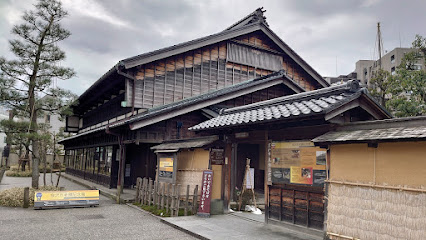
Kasumiga-ike Pond
Discover the tranquil beauty of Kasumiga-ike Pond, a stunning centerpiece of Kenrokuen Garden in Kanazawa, where nature and serenity meet.
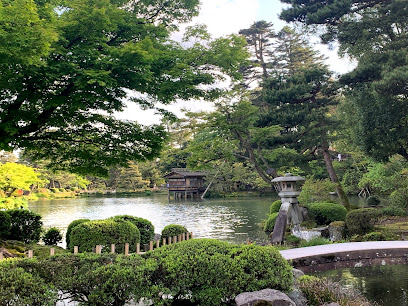
Kenrokuen Garden Katsurazaka Gate
Discover the breathtaking beauty of Kenrokuen Garden in Kanazawa, a harmonious blend of nature and traditional Japanese garden design.
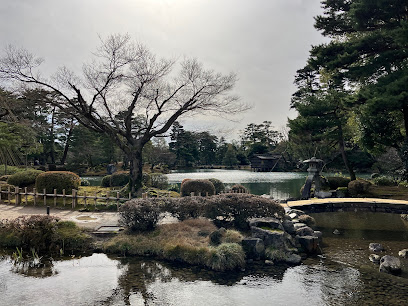
Shin-maru Hiroba
Explore the serene beauty of Shin-maru Hiroba, a stunning park next to Kanazawa Castle, perfect for relaxation and cultural experiences.
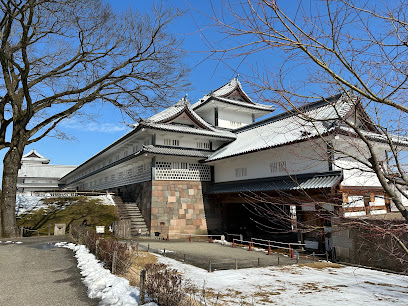
Kanazawa Castle Park Ote-mon Entrance
Explore the historical beauty of Kanazawa Castle Park Ote-mon Entrance, a serene destination rich in culture and stunning landscapes.
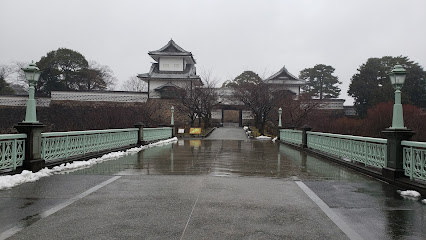
Hommaru-enchi Park
Explore the tranquil beauty and rich history of Hommaru-enchi Park, a serene escape in the heart of Kanazawa, Japan.
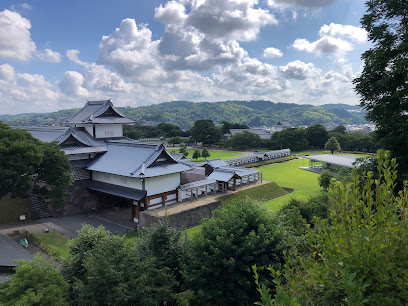
Essential places to dine
Turban Curry Main Store
Discover the authentic taste of Japanese curry at Turban Curry Main Store in Kanazawa – where flavor meets affordability.
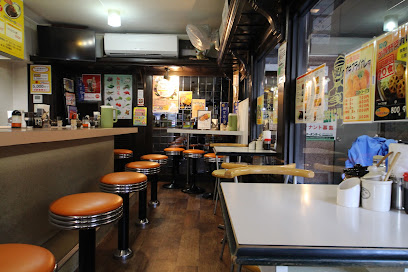
Kourin Sushi 香りん寿司
Discover the art of sushi at Kourin Sushi in Kanazawa - where fresh ingredients meet expert craftsmanship.
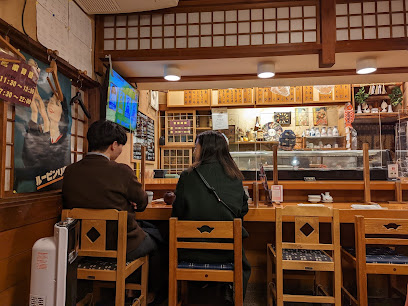
Fuwari
Experience authentic izakaya dining at Fuwari in Kanazawa—where traditional flavors meet modern twists in every dish.
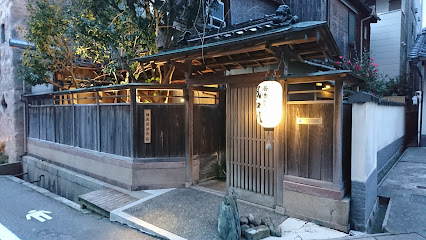
The Godburger
Discover the ultimate burger experience at The Godburger in Kanazawa – where quality meets creativity in every bite!
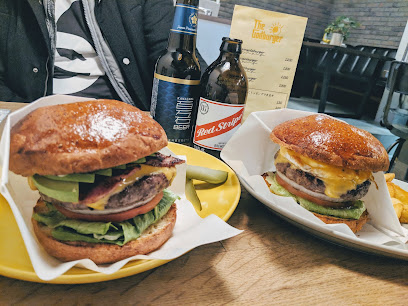
Itaru Honten
Discover the authentic taste of Japan at Itaru Honten, Kanazawa's beloved izakaya offering traditional dishes in a vibrant setting.
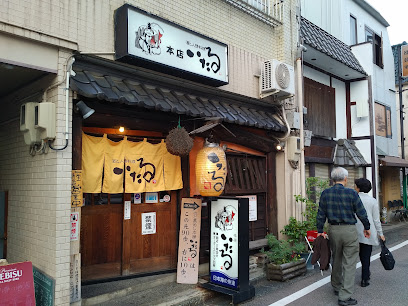
Plat Home - Kanazawa Kitchen
Experience the fusion of tradition and innovation at Plat Home - Kanazawa Kitchen with exquisite dishes crafted from local ingredients.
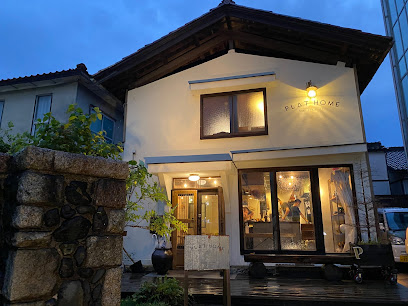
Kenrokutei
Discover authentic Japanese cuisine at Kenrokutei in Kanazawa - where tradition meets taste in a serene café setting.
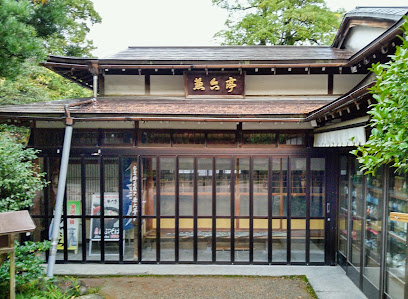
Atsushi
Discover authentic sushi craftsmanship at Atsushi, where tradition meets innovation in every bite.
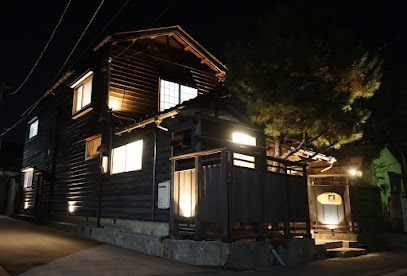
IBIS Restaurant
Experience the delightful fusion of Japanese ingredients with Western culinary traditions at IBIS Restaurant in Kanazawa.
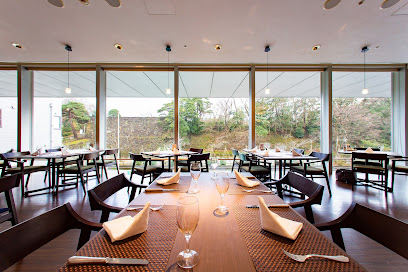
コリアンダイニング Issekisanchou di bar
Experience authentic Korean cuisine at Issekisanchou di bar in Kanazawa - where flavor meets tradition in a cozy atmosphere.
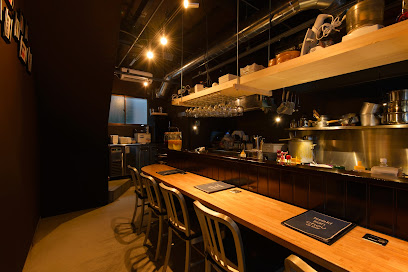
Markets, malls and hidden boutiques
Ishikawa Local Products Center
Experience the essence of Ishikawa through unique local products at the Ishikawa Local Products Center, a must-visit souvenir store in Kanazawa.
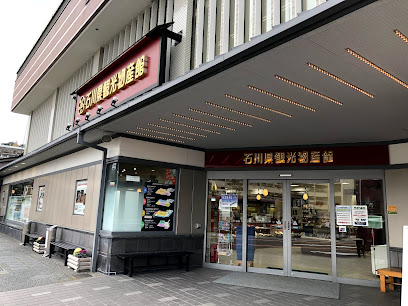
Hands Kanazawa Store
Discover a unique shopping experience at Hands Kanazawa Store, where eclectic gifts and home goods await in the heart of Kanazawa.
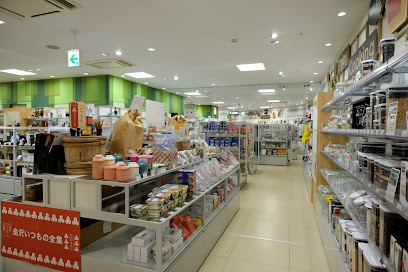
Kanazawa Hakomachi
Discover the charm of Kanazawa Hakomachi, where shopping meets culture in a vibrant atmosphere filled with local delicacies and unique crafts.
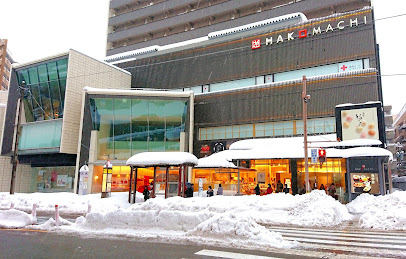
Kinpakuya Sakuda Head Shop & Workshop
Explore the enchanting world of gold leaf artistry at Kinpakuya Sakuda, a must-visit gift shop and workshop in Kanazawa, Japan.
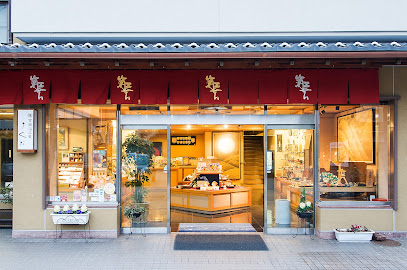
Museum Shop
Explore the Museum Shop in Kanazawa for unique gifts and souvenirs that reflect the city's rich artistic heritage and craftsmanship.
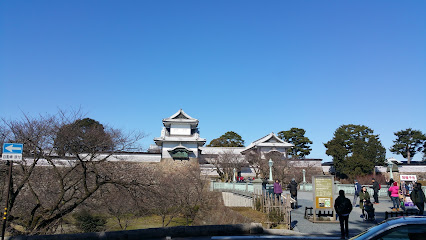
Kinpakuyasakuda Chayagai Store
Discover the exquisite craftsmanship of gold leaf at Kinpakuyasakuda Chayagai Store in Kanazawa, where tradition meets beauty in every unique souvenir.
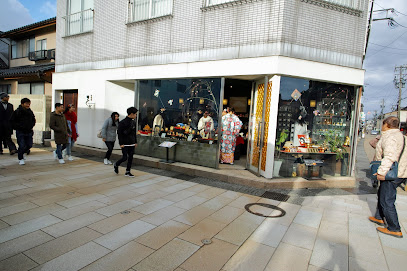
Maiami - Handmade Gift & Souvenir
Explore Maiami in Kanazawa for unique handmade gifts and souvenirs that embody Japanese craftsmanship and culture.
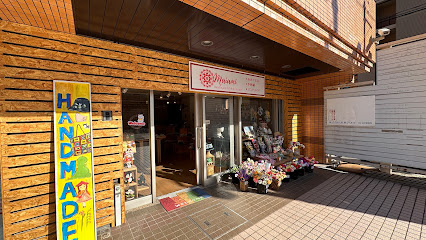
Samurai Gift
Explore Samurai Gift in Kanazawa for unique Japanese souvenirs, from traditional swords to handcrafted treasures that capture the essence of Japan.
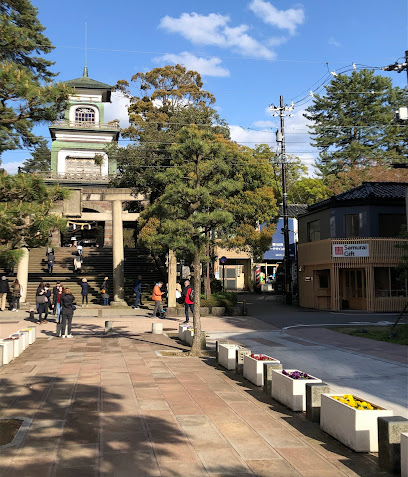
OLD JOE
Explore Kanazawa's finest men's clothing store, OLD JOE, for stylish apparel and unique shopping experiences in a vibrant cultural setting.
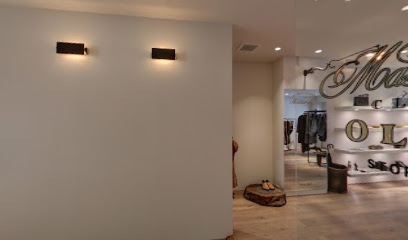
Sanrio
Explore the enchanting world of Sanrio in Kanazawa, a paradise for fans of cute gifts, toys, and whimsical characters.
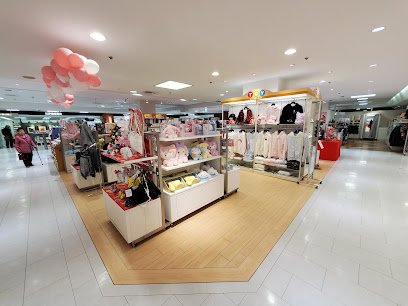
Essential bars & hidden hideouts
FURANSU COCKTAIL BAR フランス
Discover FURANSU COCKTAIL BAR in Kanazawa – a perfect blend of Japanese hospitality and innovative cocktail artistry.
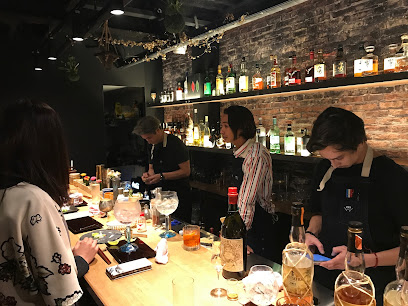
Jazz Spot Bokunen
Experience the soulful sounds of jazz at Jazz Spot Bokunen, a cozy bar in Kanazawa perfect for music lovers and casual visitors alike.
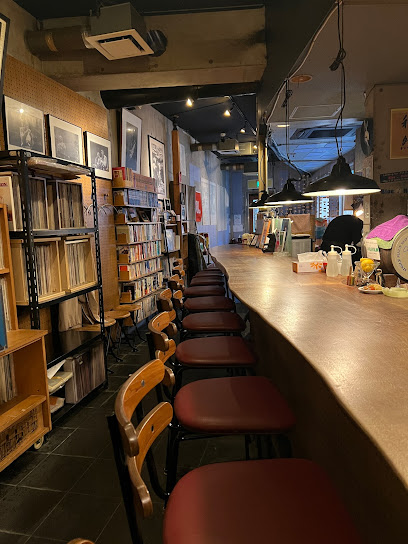
Kohaku Bar
Discover the vibrant atmosphere of Kohaku Bar in Kanazawa, where creative cocktails and a cozy ambiance create the perfect night out.
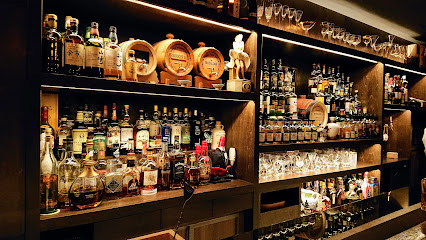
Kanazawa Music Bar
Discover Kanazawa Music Bar: A lively venue blending live music, delicious drinks, and a cozy atmosphere, perfect for unwinding after a day of exploration.
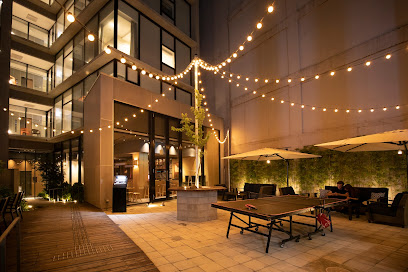
JIGGER BAR St.Louis
Discover the vibrant nightlife of Kanazawa at JIGGER BAR St.Louis, renowned for its innovative cocktails and welcoming atmosphere.
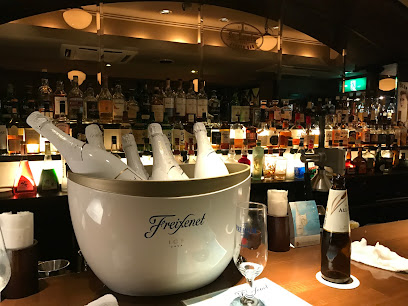
The Londonya Bar
Discover the lively atmosphere and exquisite drinks at The Londonya Bar in Kanazawa, a perfect spot for nightlife enthusiasts.
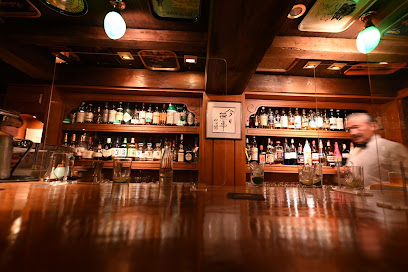
Bar Spoon
Discover Bar Spoon, Kanazawa's premier bar for exquisite cocktails and a cozy atmosphere, perfect for unwinding after a day of adventure.
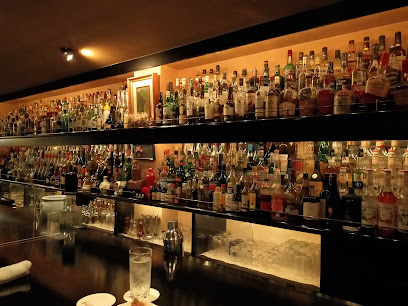
Bar Quinase
Experience the vibrant nightlife of Kanazawa at Bar Quinase, where tradition meets modern sophistication in a delightful ambiance.
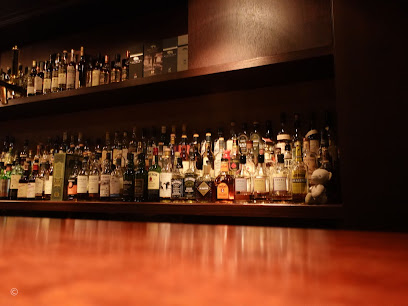
Bar
Experience Kanazawa's vibrant nightlife at this premier bar, where exceptional drinks and a welcoming atmosphere come together to create unforgettable evenings.
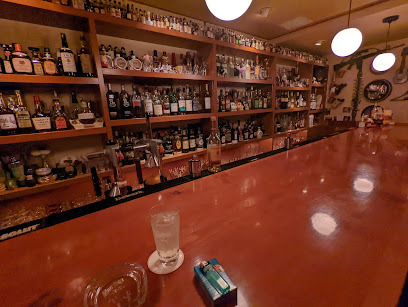
Music Bar JealousGuy
Discover the rhythms of Kanazawa at Music Bar JealousGuy, where live music meets vibrant nightlife in a stylish setting.
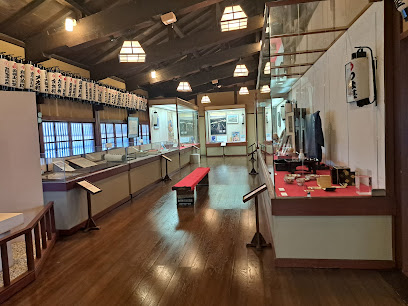
Local Phrases
-
- Helloこんにちは
[Konnichiwa] - Goodbyeさようなら
[Sayonara] - Yesはい
[Hai] - Noいいえ
[Iie] - Please/You're welcomeどうぞ
[Douzo] - Thank youありがとうございます
[Arigatou gozaimasu] - Excuse me/Sorryすみません
[Sumimasen] - How are you?お元気ですか?
[Ogenki desu ka?] - Fine. And you?元気です。あなたは?
[Genki desu. Anata wa?] - Do you speak English?英語を話せますか?
[Eigo o hanasemasu ka?] - I don't understandわかりません
[Wakarimasen]
- Helloこんにちは
-
- I'd like to see the menu, pleaseメニューを見せてください
[Menyuu o misete kudasai] - I don't eat meat肉は食べません
[Niku wa tabemasen] - Cheers!乾杯!
[Kanpai!] - I would like to pay, pleaseお会計をお願いします
[Okaikei o onegaishimasu]
- I'd like to see the menu, pleaseメニューを見せてください
-
- Help!助けて!
[Tasukete!] - Go away!行ってください!
[Itte kudasai!] - Call the Police!警察を呼んでください!
[Keisatsu o yonde kudasai!] - Call a doctor!医者を呼んでください!
[Isha o yonde kudasai!] - I'm lost道に迷っています
[Michi ni mayotte imasu] - I'm ill具合が悪いです
[Guai ga warui desu]
- Help!助けて!
-
- I'd like to buy...買いたいです...
[Kaitai desu...] - I'm just looking見ているだけです
[Mite iru dake desu] - How much is it?いくらですか?
[Ikura desu ka?] - That's too expensiveそれは高すぎます
[Sore wa takasugimasu] - Can you lower the price?値段を下げてもらえますか?
[Nedan o sagete moraemasu ka?]
- I'd like to buy...買いたいです...
-
- What time is it?何時ですか?
[Nanji desu ka?] - It's one o'clock一時です
[Ichiji desu] - Half past (10)十時半です
[Juuji han desu] - Morning朝
[Asa] - Afternoon午後
[Gogo] - Evening夕方
[Yuugata] - Yesterday昨日
[Kinou] - Today今日
[Kyou] - Tomorrow明日
[Ashita] - 1一
[Ichi] - 2二
[Ni] - 3三
[San] - 4四
[Shi] - 5五
[Go] - 6六
[Roku] - 7七
[Nana] - 8八
[Hachi] - 9九
[Kyu] - 10十
[Ju]
- What time is it?何時ですか?
-
- Where's a/the...?...はどこですか?
[... wa doko desu ka?] - What's the address?住所は何ですか?
[Juusho wa nan desu ka?] - Can you show me (on the map)?地図で見せてもらえますか?
[Chizu de misete moraemasu ka?] - When's the next (bus)?次の(バス)はいつですか?
[Tsugi no (basu) wa itsu desu ka?] - A ticket (to ....)チケット(へ....)
[Chiketto (e....)]
- Where's a/the...?...はどこですか?
History of Kanazawa Castle Park
-
Kanazawa Castle, originally constructed in the late 16th century by the Maeda clan, served as the seat of the Kaga Domain. This period marked the beginning of Kanazawa's development as a political and cultural center in the region. The castle's strategic location, surrounded by rivers and mountains, provided both defense and a commanding view of the surrounding area.
-
Throughout the Edo period (1603-1868), Kanazawa Castle underwent various renovations and expansions, reflecting the architectural styles and defensive needs of the time. The castle's structures, including the iconic Tenshukaku (main tower), were reconstructed multiple times, particularly after fires and natural disasters, showcasing the resilience and adaptability of the Maeda clan.
-
As the political center of the Kaga Domain, Kanazawa became a hub for arts and culture during the Edo period. The castle park was not only a military stronghold but also a venue for cultural events, including traditional tea ceremonies, Noh performances, and the promotion of crafts such as Kaga Yuzen (silk dyeing), which still thrive today.
-
The Meiji Restoration in 1868 brought significant changes to Kanazawa Castle Park as Japan transitioned from feudal rule to a modern state. The castle's military significance diminished, leading to the dismantling of some structures. However, the park area was transformed into a public space, allowing citizens to engage with the natural beauty and historical legacy of the site.
-
In the latter half of the 20th century, efforts intensified to preserve Kanazawa Castle and its surrounding park, recognizing the importance of these historical sites for cultural heritage. Restoration projects, including the reconstruction of the main tower in 2015, have aimed to maintain the historical integrity of the castle while promoting it as a symbol of Kanazawa's rich history.
Kanazawa Castle Park Essentials
-
Kanazawa Castle Park is centrally located in Kanazawa and is easily accessible from various neighborhoods. From Kanazawa Station, take the Hokuriku Railroad Bus (also known as the Kanazawa Loop Bus) for a direct ride to the park. Alternatively, it’s about a 20-minute walk from the station. For those coming from the Higashi Chaya District or the Kenrokuen Garden, local buses or a pleasant stroll will get you there in under 15 minutes.
-
Kanazawa Castle Park is best explored on foot to fully appreciate its beauty and historical significance. The park is interconnected with surrounding attractions, including Kenrokuen Garden and the Nagamachi Samurai District. Bicycles can be rented nearby for a more extensive exploration of the city. The Kanazawa Loop Bus also services various points of interest around the park, making it convenient for longer distances.
-
Kanazawa is generally a safe city for tourists, including Kanazawa Castle Park. However, like any urban area, it is wise to stay vigilant. Avoid secluded areas of the park after dark and keep an eye on your belongings in crowded spaces. There are no specific high-crime areas targeting tourists, but standard precautions should be taken.
-
In case of an emergency, dial 110 for police assistance or 119 for fire and medical emergencies. There are several hospitals and clinics near Kanazawa Castle Park, and it’s advisable to have travel insurance that covers medical issues. For minor health concerns, local pharmacies can provide over-the-counter medications.
-
Fashion: Do wear comfortable shoes for walking and dress appropriately for the weather. Don’t wear overly casual or revealing clothing, especially when visiting sacred sites within the park. Religion: Do respect local customs, especially during ceremonies. Don’t take photographs in restricted areas. Public Transport: Do be courteous on buses by giving up your seat for elderly passengers. Don’t eat or drink on public transport. Greetings: Do greet locals with a polite bow and a smile. Don’t be overly loud or intrusive. Eating & Drinking: Do enjoy local snacks from nearby vendors. Don’t litter or leave food waste in the park.
-
To experience Kanazawa Castle Park like a local, visit early in the morning to enjoy the tranquility before the crowds arrive. Participate in seasonal events, such as cherry blossom viewing in spring or the vibrant autumn foliage. Engage with local artisans in nearby districts who often showcase traditional crafts. Don’t miss trying the local cuisine at food stalls around the park, especially the famous Kanazawa curry. Consider using a combination of walking and cycling to explore the interconnected gardens and historical areas nearby.
Nearby Cities to Kanazawa Castle Park
-
Things To Do in Nagoya
-
Things To Do in Kyoto
-
Things To Do in Nara
-
Things To Do in Osaka
-
Things To Do in Tokyo
-
Things To Do in Hiroshima
-
Things To Do in Fukuoka
-
Things To Do in Pohang
-
Things To Do in Gyeongju
-
Things To Do in Ulsan
-
Things To Do in Busan
-
Things To Do in Andong
-
Things To Do in Daegu
-
Things To Do in Chuncheon
-
Things To Do in Sapporo








